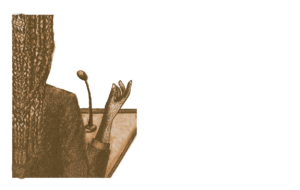For nine days in 1963 the revered Reverend Dr. Martin Luther King was jailed in Birmingham, Alabama, charged with parading without a license. He had been called to the city by the Southern Christian Leadership Conference to bring media attention to a sustained protest and business boycott being waged by the city’s black population. This is the one you see all the photos of with the fire hoses and police dogs being viciously turned on black people. A group of eight white clergymen of various denominations published a letter in the city’s daily paper urging blacks to be patient, to battle racism in the courts instead of on the streets, and to certainly not be mislead by agitating “outsiders.” King’s famous tome, Letter from a Birmingham Jail, was written as a response to these clergymen.
In the letter, King expressed surprise and great disappointment that the day’s white religious institutions weren’t emptying their pews to support the cause of fair treatment for America’s blacks. As part of that Birmingham movement, blacks went to segregated white churches and knelt in prayer until they were dragged away in handcuffs. A group of rabbis from New York City flew in to support the action, seeing the treatment of blacks as no less significant than the Holocaust itself. The Birmingham rabbinical community took issue, and let the New Yorkers know they were not welcome.
As a third generation preacher himself, King wrote “I have been so greatly disappointed with the white church and its leadership.
“When I was catapulted into the leadership of the bus protest in Montgomery, Alabama, a few years ago….I felt that the white ministers, priests and rabbis of the South would be among our strongest allies. Instead, some have been outright opponents… and all too many others have been more cautious than courageous and have remained silent behind the anesthetizing security of stained glass windows.
“In spite of my shattered dreams, I came to Birmingham with the hope that the white religious leadership of this community would see the justice of our cause and, with deep moral concern, would serve as the channel through which our just grievances could reach the power structure. I had hoped that each of you would understand. But again, I have been disappointed.”
He goes on to say the early Christians weren’t afraid to be labeled as rabble rousers. There was a time when the church set the trend instead of waiting to see which way the wind would blow before it took action. If the church didn’t take the lead and offer moral guidance in the face of this injustice, he admonished, “it will lose its authenticity, forfeit the loyalty of millions and be dismissed as an irrelevant social club with no meaning for the twentieth century.”
Notably, the Presbyterian churches of Birmingham welcomed black visitors through its doors during this historic action.
This past January, coinciding with the MLK holiday, North Presbyterian Church launched a three part study of King’s famous letter. The church is in Williamsville, a white suburb of Buffalo, New York. The Presbyterian church as a whole is considering adding this classic piece of writing to its Book Of Confessions, an anthology of historical papers that align with and in some cases outright define the Presbyterian faith. Adding anything new to this book is a six year steady, deliberate, measured process.
This is a big, honkin’ deal.
Adding Letter from a Birmingham Jail would be the church saying, in effect, “black lives matter. And if you can’t be down with that, you can’t in good conscience call yourself a Presbyterian.” That is indeed the bold kind of proclamation Dr. King was looking for in 1963.
I am not Presbyterian or religious at all, I have no dog in this fight either way. I attended the three-week study out of curiosity and met the church’s pastor, William T. Hennessy. He is a white man who, like many whites, is out in the weeds on exactly what needs to be done to inspire his congregation to think earnestly and actively about race relations in our country and their communities of influence. But he knows that it’s important, and a necessary query to engage with in order for one’s spirituality to be contemporary and practical, so he’s trying something. He’s teamed up with Pastor Tracy S. Daub of University Presbyterian Church in Buffalo proper, and formed a racial justice task force that is wobbling on its legs like a newly born foal. All these two ministers know for sure is that when the next some such letter is being written from whatever jail, their flock will not go down in history as white people of faith who sat anesthetized behind stained glass and strict adherence to ritual for its own sake. That’s an excellent start.
The Unitarian Universalists Church has also made their stand on racial justice public in no uncertain terms. The congregation on the west side of Buffalo emblazoned the “black lives matter” emblem in huge, dark colors along one of its outside walls. Workshops and discussions about race are regularly a part of their calendar. The UU Church in the Buffalo suburb of Amherst has also added “black lives matter” to its signage that sits by the road. The church in East Aurora, a half hour south of Buffalo, invited me to speak for MLK Day (we got snowed out, bummer!). One of that religion’s seven bedrock principles is “we…affirm and promote the inherent worth and dignity of every person.” As a religion, they have committed to “put your money where your mouth is.”
I would only add this to their efforts. Don’t be “the blind leading the blind.” I have observed events centered around race at all of the churches I’ve mentioned (with the exception of E. Aurora–snowed out, bummer!) and it is often my experience that no other black people are in attendance but me. You wouldn’t convene a group of lay people with Gray’s Anatomy and try to figure out among yourselves how to remove a spleen. No. You’d get a couple board certified surgeons in there to explain to you what they live every day and you’d listen to them as your experts, even if it doesn’t jibe with what you think you already know as progressive, “woke” white people.
(For what it’s worth, I officially lay to rest the term “woke.” But I digress…)
I wish to encourage spiritual/religious bodies, and all individuals, out there stumbling around trying to find your authenticity and relevance in the face of the Black Lives Matter movement. I know it can be a challenge. You don’t have to go at it alone though, there are black folks out here who would be glad to engage with sincere white people who truly are willing to listen. I will end with simply asking you to honor me with your comments and thoughts below, and to pass this essay along to someone you think could be encouraged by it.

